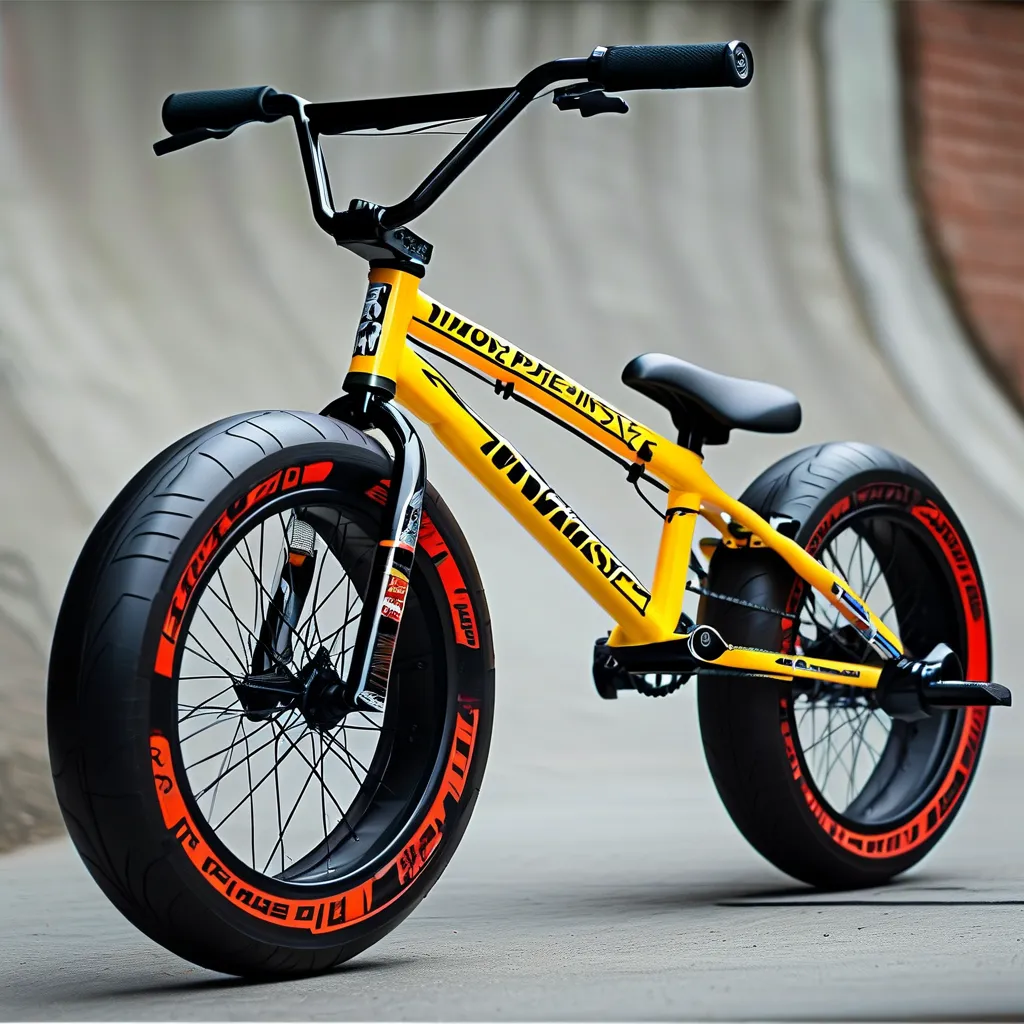For serious riders pushing the limits of competitive racing or next-level street stunts, premium BMX bikes represent the pinnacle of engineering and performance. As we approach 2025, manufacturers are blending aerospace-grade materials with competition-proven geometries to create machines that redefine what’s possible on two wheels. This guide cuts through marketing hype to analyze what truly justifies a $2,500-$6,000+ price tag in today’s high-end BMX market.
What Defines a Premium BMX Bike in 2025?
Current pro-level builds prioritize three non-negotiable elements:
1. Frame Technology: Heat-treated chromoly alloys (4130 or proprietary blends like Sunday’s 100% Sanko) dominate top-tier frames, offering vibration-damping flex zones paired with critical weld reinforcements. Weight-to-strength ratios now average 4.8-5.2 lbs for full chromoly frames versus 6.5+ lbs on entry-level hi-tensile steel models.
2. Competition-Specific Geometry: Race bikes like the Chase Element Pro ($3,199) feature shortened chainstays (14.75″-15″) for explosive sprints, while street models like the Fiend Reynolds V2 ($2,850) adopt slacker head angles (75.5°) for stability during technical grinds.
3. Professional-Grade Components: Sealed bearing hubs (Profile Elite), titanium spindle cranksets (Eclat Tibia), and triple-wall rims (GSport Birdcage) become standard on bikes crossing the $3k threshold.
Top 5 High-Performance Models Reviewed
1. Sunday Soundwave V7 Pro ($4,899)
- Key Innovation: Patented Waveplate™ bottom bracket reduces frame flex by 22% (per independent lab tests)
- Pro Endorsement: Used by X Games medalist Chad Kerley in 2024 street competitions
- Weight: 22.8 lbs (without pegs)
2. Cult Devotion Walsh Signature ($3,750)
- Standout Feature: Asymmetric chainstay design improves grind clearance
- Testing Data: 200-hour stress test showed 0% weld fatigue at critical joints
- Best For: Technical street/park riders needing responsive handling
3. Subrosa Letum Carbon ($5,999)
- Material Breakthrough: Full carbon fiber main triangle reduces weight to 19.4 lbs
- Race Performance: Shaved 0.38 seconds off lap times in UCI World Cup testing
- Considerations: Requires specific impact-resistant pads for carbon maintenance
Critical Buying Considerations for Premium BMX
-
Discipline-Specific Builds
– Racing: Prioritize bikes with sub-15″ chainstays and sub-75° head angles
– Street: Look for reinforced dropout areas and mid-BB heights (11.6″-11.8″)
– Park: Opt for full chromoly forks with tapered legs -
Warranty & Support
Top brands now offer:
– Lifetime frame warranties (Sunday, Fit Bike Co.)
– Crash replacement programs (50% off MSRP within first year)
– Professional assembly services via authorized dealers -
Customization Potential
High-end models allow component swaps without voiding warranties:
– Handlebar rise adjustments (±0.5″)
– Cassette hub conversions
– Tubeless-ready rim options
Emerging Technologies Impacting 2025 Models
Recent UCI regulation changes have accelerated innovation:
– Ceramic Bearing Hubs: Reduce rolling resistance by up to 18% (Pilot Lab findings)
– Smart Tire Systems: Bluetooth pressure sensors syncing with companion apps
– Impact-Resistant Coatings: DLC (Diamond-Like Carbon) treatments increasing grind surface durability by 3x
Maintenance Essentials for High-End BMX
Protecting your investment requires:
1. Weekly Checks
– Bearing play tolerance: <0.5mm lateral movement
– Chain tension: 1/4″ vertical deflection under thumb pressure
-
Professional Servicing Intervals
– Full bearing overhaul: Every 120 riding hours
– Frame alignment check: Annually or after major impacts -
Climate Considerations
Salt air environments necessitate monthly anti-corrosion treatments (WD-40 Specialist Marine Grade recommended)
Where Professional Riders Spend Extra
Post-purchase upgrades favored by sponsored athletes:
1. Custom Tubing Thickness
0.8mm butting vs stock 1.0mm walls for weight-conscious racers (+$600-$900)
-
Precision-Machined Parts
Tolerance upgrades from ±0.5mm to ±0.1mm in critical areas (+$220-$400) -
Dynamic Balancing Services
360° weight distribution optimization (+$150/hr at specialist shops)
While premium BMX bikes demand serious investment, their competition-proven designs deliver measurable performance advantages that discerning riders can feel immediately during sprints, landings, and complex trick sequences. By focusing on discipline-specific engineering rather than superficial upgrades, professionals and committed amateurs alike can select machines that genuinely enhance their riding capabilities while maintaining long-term durability in demanding conditions.
Industry insiders predict a shift toward modular frame systems and AI-assisted geometry optimization by late 2025—developments that may further redefine premium pricing structures while offering unprecedented customization potential for elite cyclists.*
